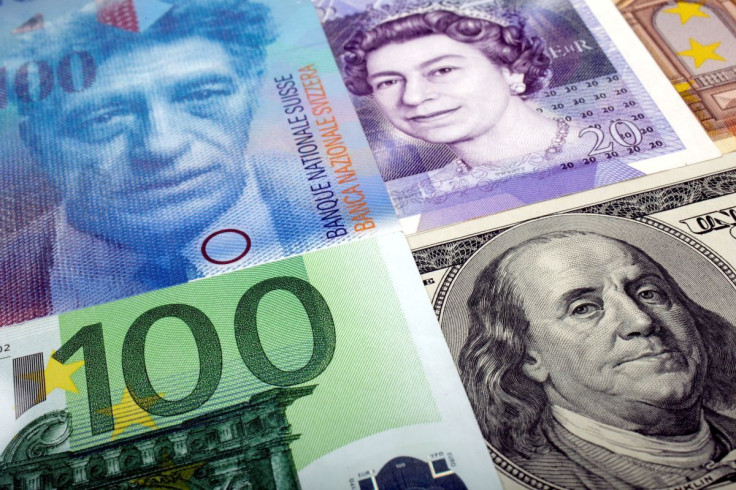Dollar Gives Up Some Of Previous Day's Gains, Ukraine Still In Focus

The dollar retreated against most currencies, including the euro, on Friday, as markets walked back some of the tumultuous moves from the previous day when Russia's invasion of Ukraine sent investors scrambling.
Russia's rouble also recovered some ground, trading at around 84.4 per dollar on Friday, having hit a record low of 89.986 per dollar the day before as Russia unleashed the biggest attack on a European state since World War Two.
The United States, the European Union and some other countries responded with a wave of sanctions impeding Russia's ability to do business in major currencies along with sanctions against banks and state-owned enterprises.
Fighting continued on Friday as Russian troops advanced towards Kyiv, though markets were calmer than 24 hours previously, with stock markets rising in Asia, following gains on Wall Street overnight. [MKTS/GLOB]
The euro was last at $1.1218, up 0.24%, having touched as low as $1.1106 on Thursday, its lowest since May 2020.
Other currencies also recovered their previous day's losses and the dollar index was at 96.854, 0.2% lower. The scale of earlier moves means it still up 0.8% on the week, however.
"The first order impact (of the conflict) is naturally in Russia and Ukraine ... but there is an impact on Asia Pacific bond and foreign exchange markets as well," said Riad Chowdhury, APAC head of MarketAxess, a fixed income trading platform.
Chowdhury pointed to a "flight-to-quality type move both in global assets (moving to the dollar and yen) as well as in emerging markets".
Also part of Friday's recovery was sterling, which firmed 0.4% to $1.343, the Australian dollar, which was 0.46% higher at $0.7195, and the yen, which rose to 115.23 per dollar.
As well as the direct impact of the war in Ukraine, currency traders were trying to assess the war's impact on monetary policy around the world.
Several policymakers at the European Central Bank (ECB), even those sometimes seen as hawkish, said the situation in Ukraine could cause the ECB to slow its exit from stimulus measures.
Meanwhile, investors and some U.S. officials said the war would likely slow but not stop approaching interest rate hikes.
Federal Reserve policymakers have been publicly sparring over whether to begin with a 25 or 50 basis point rate hike at its March meeting.
"We expect the consequences (of the conflict) to translate into a somewhat less hawkish stance from major central banks - tilting the Fed towards a 25 basis hike in March and keeping the ECB on the fence," said Invesco strategists in emailed comments.
© Copyright Thomson Reuters 2024. All rights reserved.




















